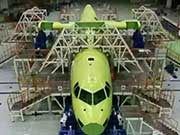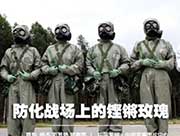

CARACAS, July 22 -- The resumption of diplomatic ties between Cuba and the United States has led many around the world to believe Washington has embarked on a new era of improved relations with Latin America.
But many Latin American political observers are skeptical, believing the U.S. is more interested in bolstering its image and resurrecting its influence in the region.
On Monday, during the inauguration of Cuba's embassy in Washington, U.S. Secretary of State John Kerry said his country was open to a fresh start and the new era of ties with Havana might lead to better relations with other left-leaning governments in the region, such as Venezuela.
"With the beginning of diplomatic relations, we are pledging to engage with each other to talk about our differences...and to try to build a relationship that benefits the people of Cuba, the people of the United States, the people of the region," said Kerry.
According to Venezuelan political scientist Basem Tajeldine, who spoke to Xinhua about the recent developments, "The United States has entered a new stage in its foreign policy toward Venezuela and Latin America to spruce up its image after diplomatic embarrassment at April's Summit of the Americas in Panama."
At that hemispheric gathering, Caracas received the unanimous support of 32 nations from throughout Latin America and the Caribbean in condemning a White House executive order declaring the South American nation a threat to the U.S. national security.
Countries around the world also were vocal in their criticism of the strongly-worded decree, which justified economic sanctions against several Venezuelan officials.
According to Tajeldine, Washington is still determined to thwart Latin America's socialist governments and increasing regional integration, but without the direct participation of U.S. officials.
"The final goal isn't limited only to destroying the socialist government in Venezuela, but also to attack the integration that has been built in Latin America in the past decade," said the expert.
Tony Boza, a well-known Venezuelan political analyst, agrees, saying Washington's recent "goodwill" actually "camouflages" its economic and political interests.
"It's all part of Washington's general strategy to undermine Latin American integration, destabilize Venezuela, because it has the world's largest oil reserves, and destroy the Petrocaribe agreement," he said, referring to the Caracas-led oil association.
The U.S. has at the same time established a "diplomatic channel" with Venezuela, at President Nicolas Maduro's request, to normalize relations, which have been rocky since Venezuela's socialist party came to power in 1999.
But the outward diplomacy, such as restoring diplomatic ties with Cuba, represents Washington's "public face," Boza believes. The actual intentions of Washington are to pursue its hostile policy towards Caracas.
"The still standing executive order against Venezuela is like a time bomb against Caracas' sovereignty and can be used anytime as an excuse by the White House to implement any sanctions or even military action," Boza noted.
While diplomatic ties have been restored, the U.S.-led trade embargo, which harms Cuba's development, is still in force. The White House has called on Congress to lift the embargo, but the majority of the conservative legislature is reluctant to do so.
Only by ending the economic, trade and financial embargo imposed on Cuba in 1962, in addition to several other steps, will the two nations be able to normalize relations, said Rodriguez.
Day|Week

 China starts assembly of world’s largest amphibious aircraft
China starts assembly of world’s largest amphibious aircraft PLA's only woman CBRN emergence rescue team
PLA's only woman CBRN emergence rescue team Stunning! Gorgeous girls practice yoga on 2,000-meter-high cliff
Stunning! Gorgeous girls practice yoga on 2,000-meter-high cliff PLA Air Force fighter aircraft in action
PLA Air Force fighter aircraft in action A glimpse of China's Zijinshan gold & copper mine
A glimpse of China's Zijinshan gold & copper mine Be an ageless goddess like them
Be an ageless goddess like them Hot figure show in SW China
Hot figure show in SW China Evolution of Chinese beauties in a century
Evolution of Chinese beauties in a century